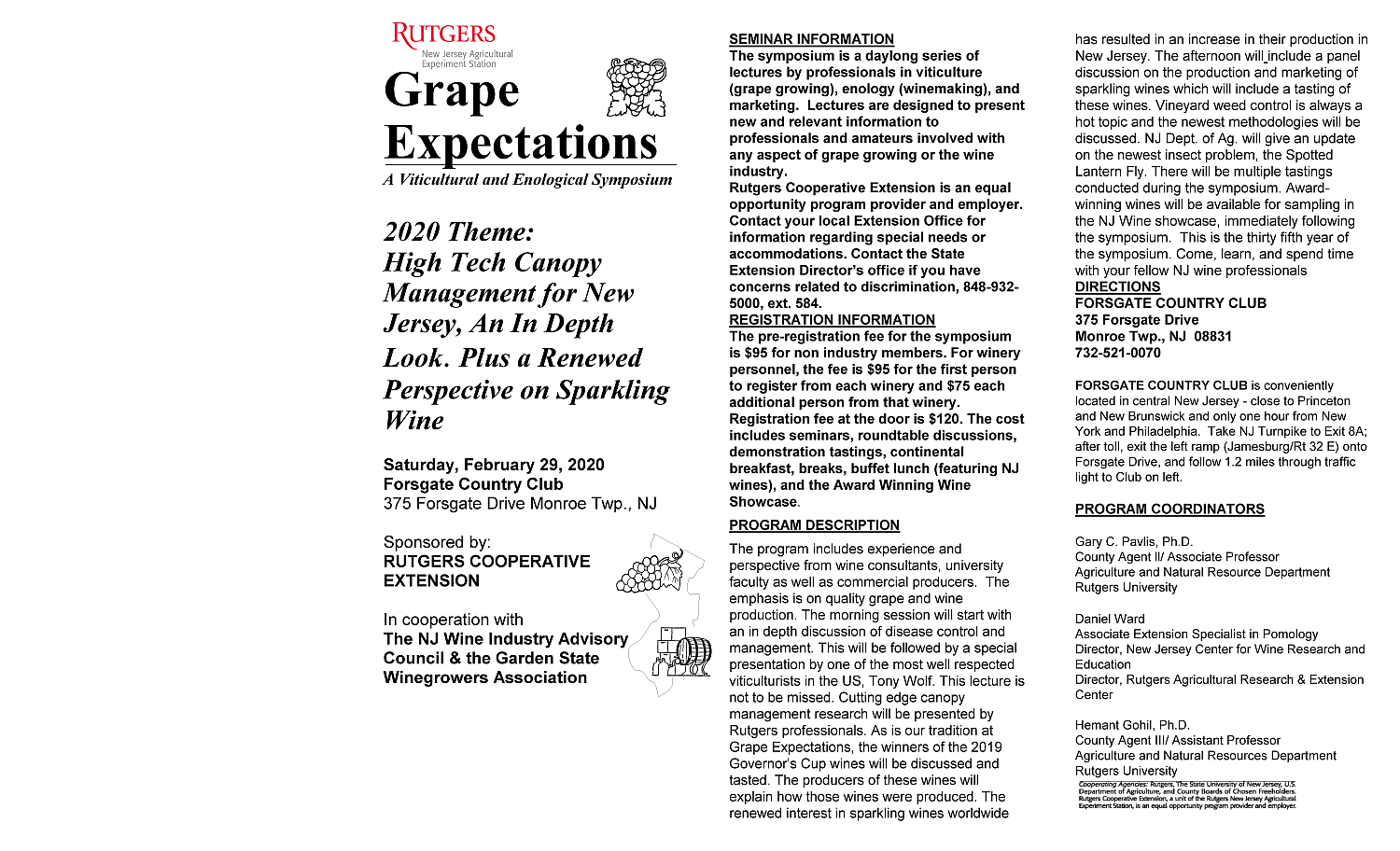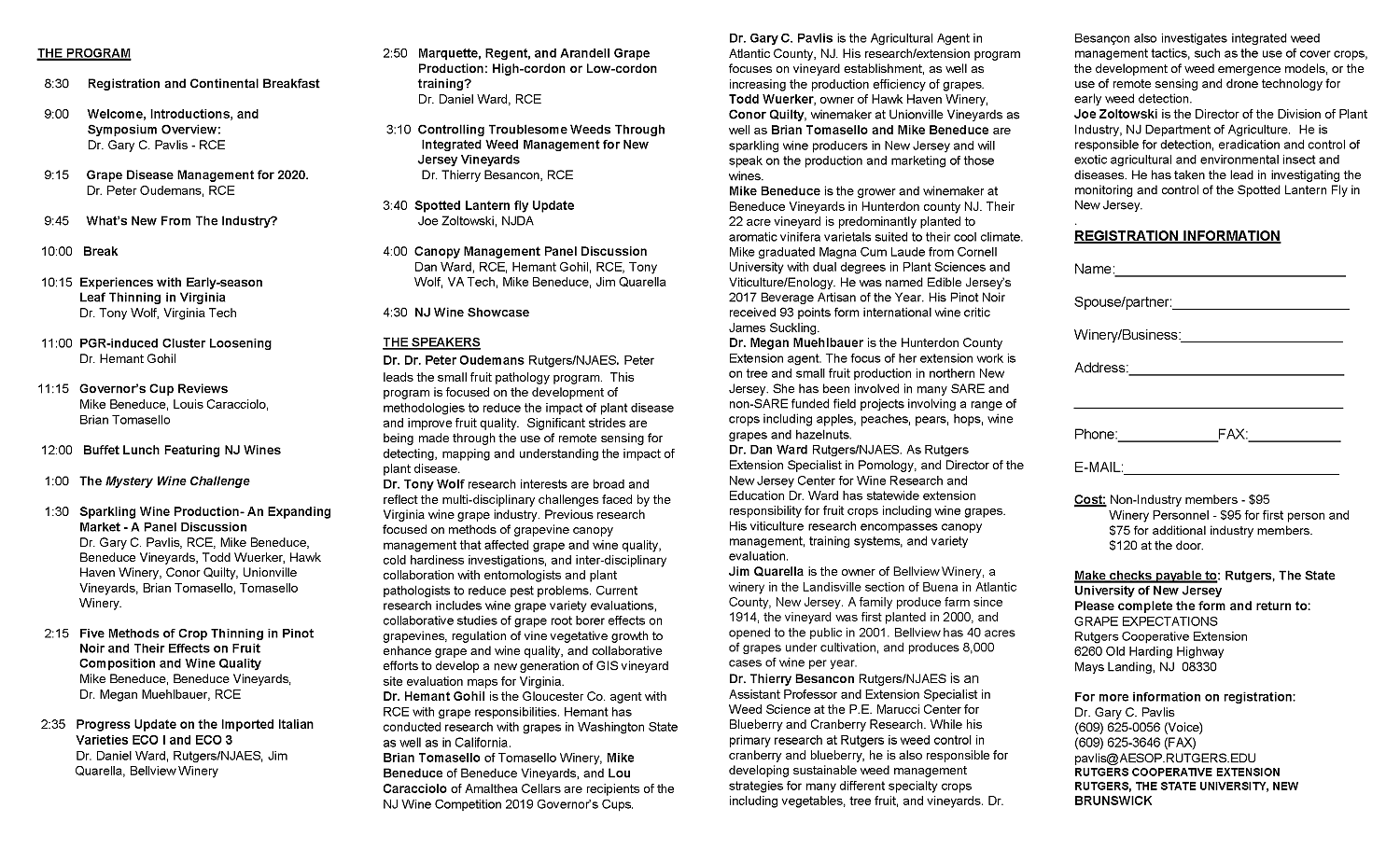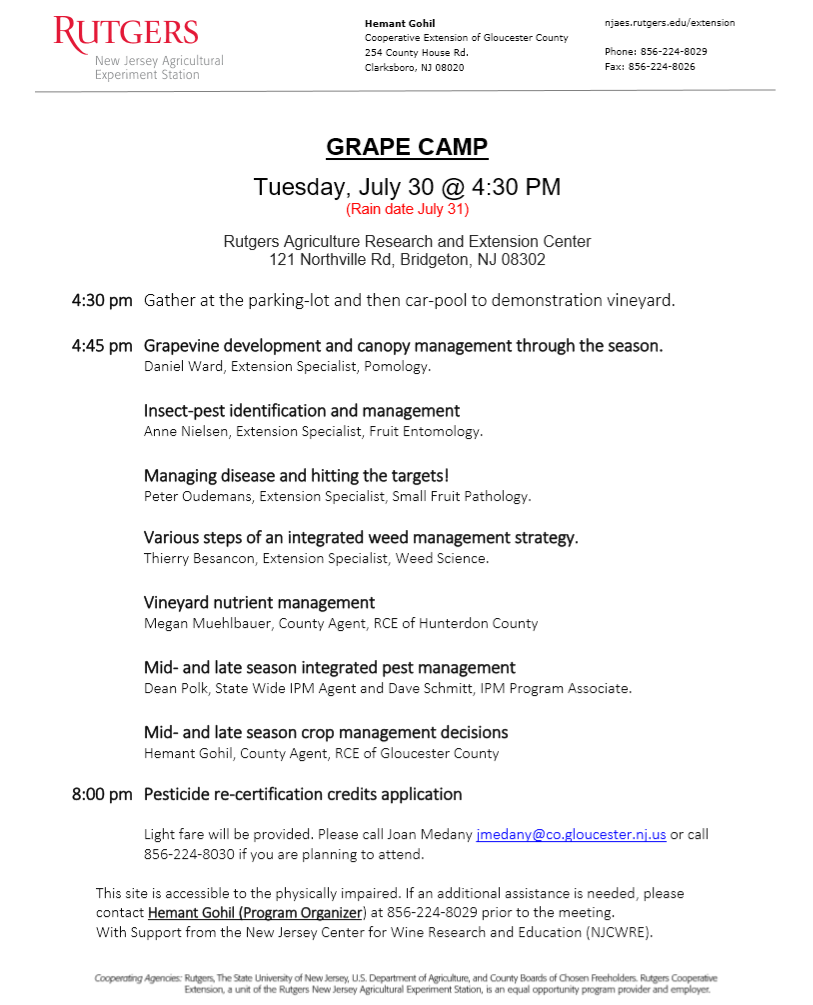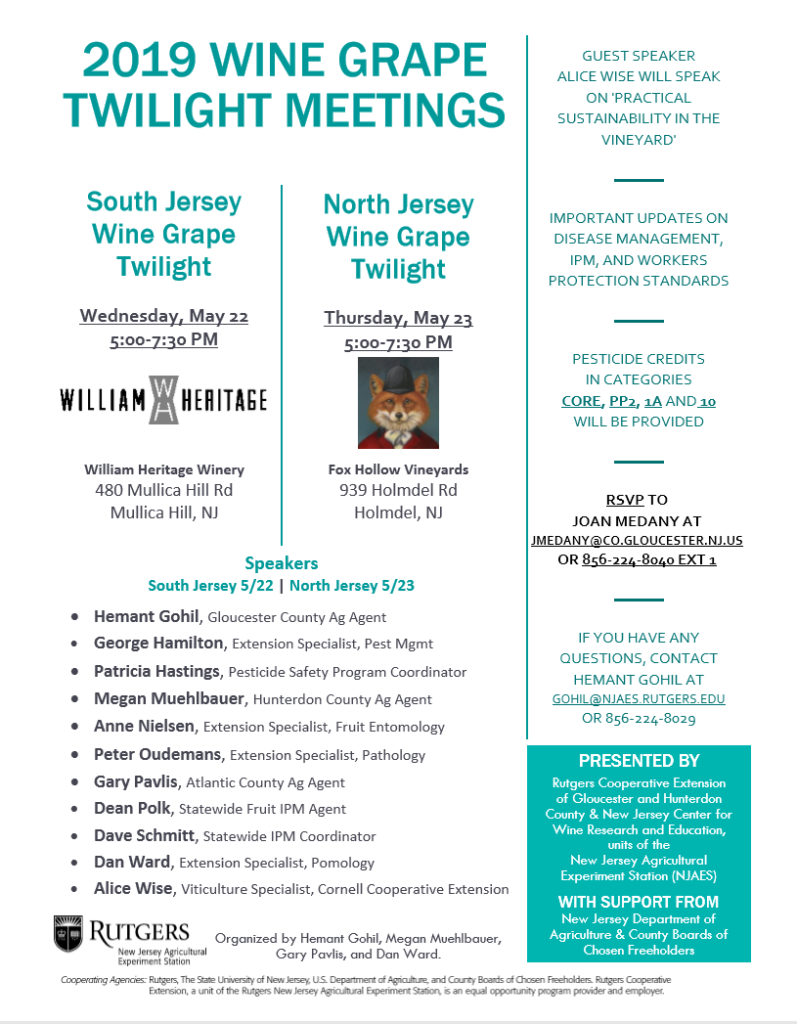Preemergence herbicides should be applied prior to weed seed germination AND prior to bud break. If applied to weeds that are already out of the ground, most of these products will not control them. Keep in mind that these herbicides should receive at least ½” rainfall or irrigation one to seven days after application (depending on herbicides) to incorporate the herbicide into the soil (usually called “activation”).
In order to reduce the potential of selecting for herbicide-resistant weeds, it is highly recommended to mix two residual herbicides with different Modes of Action (MOA) whenever you apply preemergence herbicides. Make sure the herbicides you plan to apply will be effective at controlling the weed species in your field by checking the herbicide label. Usually, residual herbicides will suppress weeds for 6 to 8 weeks depending on irrigation as well as soil and weather conditions. Roundup (glyphosate), Rely 280 (glufosinate), and Gramoxone (paraquat) are postemergence herbicides that may be applied with preemergence herbicides before bud break with little risk of crop injury.
- MOA 2: Matrix FNV or Solida (rimsulfuron) are ALS (acetolactate synthase) inhibitors with both preemergence and postemergence activity. These herbicides will control most annual broadleaves and help suppress yellow nutsedge. However, they are weak on common groundsel, common lambsquarters, eastern black nightshade, and will not control ALS resistant weeds (horseweed, ragweed) already widespread in New Jersey. Thus, these herbicides should always be tank mixed with a partner effective at controlling these weeds.
- MOA 3: Kerb (pronamide), Prowl H2O (pendimethalin) and Surflan (oryzalin) are mitosis inhibitors that will be effective at controlling many annual grass species for 4 to 6 weeks after application. Kerb can also help control perennial quackgrass. If applied to warm soils (> 55°F), Kerb persistence (and weed control) is much reduced; therefore, reserve Kerb for fall or winter application. Prowl H2O and Surflan are labeled for use in bearing and non-bearing grapes, whereas Kerb can only be used in vineyards that have been established for a minimum of 6 months. We strongly recommend applying Prowl H20 before bud swell in order to avoid any phytotoxicity injury later in the season.
- MOA 5 and 7: The photosynthesis inhibitors (PS II inhibitors) have a broad spectrum of control and will be effective against many broadleaves (including common chickweed, common lambsquarters, common groundsel, henbit, nightshade, redroot pigweed, pineappleweed, shepherd’s-purse, smartweed, and some mustards) when applied in spring. Princep will also control most of the annual grasses and help suppressing quackgrass. Karmex (diuron) and Princep (simazine) have relatively low solubility and have been very safe on grape. Both herbicides are labeled only for use in vineyards established at least 3 years.
- MOA 12: Solicam (norflurazon) is a pigment inhibitor that may be applied in fall or early spring primarily for annual grass control and quackgrass suppression. Solicam may also provide partial control of many broadleaf weeds as well as of yellow nutsedge. Use Solicam only in vineyards that have been established for a minimum of 6 months.
- MOA 14: Chateau (flumioxazin), Goal 2XL (oxyfluorfen), Zeus XC (sulfentrazone), and Zeus Prime XC (sulfentrazone plus carfentrazone) are PPO(Protoporphyrinogen oxidase) inhibitors with activity against many broadleaves (including pigweeds, common groundsel, common mallow, common lambsquarters, ladysthumb, wild mustard, shepherd’s-purse, nightshades, morning glories) when applied preemergence in spring. Chateau, Goal 2XL and Zeus Prime XC also have some postemergence activity on newly emerged seedlings of annual weeds. Zeus products may also provide some suppression of yellow nutsedge. Vineyards must have been established at least two years (Chateau) or three years (Goal 2XL, Zeus products) prior to use of these herbicides.
- MOA 15: Devrinol (napropamide) is a long-chain fatty acid inhibitor. Devrinol will provide good control of annual grasses and should therefore be tank mixed with a PSII or a PPO inhibitor for controlling broadleaf weeds. Devrinol is rapidly degraded if left exposed on the soil surface, so it should be applied less than 24 hours before a rain event to incorporate the herbicide in the soil. Devrinol is labelled for use on bearing and non-bearing vineyards.
- MOA 20: Casoron (dichlobenil) is a cellulose synthesis inhibitor recommended for fall application to control many annual and perennial broadleaves, grasses and yellow nutsedge. If left on the soil surface or if applied to warm soil > 55°F for Casoron 4G or 70°F for Casoron CS, this herbicide can lose much of its activity. So, reserve this herbicide ONLY for fall or winter applications. Casoron CS is labelled ONLY for use in vineyards established at least 3 years.
- MOA 21: Trellis SC (isoxaben) is a cell wall synthesis inhibitor currently registered for use on bearing and non-bearing grape. Trellis SC primarily controls annual broadleaf weeds, such as horseweed, common lambsquarters, wild mustards, shepherd’s- purse, purslane, and common chickweed; higher rates may also suppress field bindweed and curly dock. However, Trellis SC will have to be mixed with a Group 3 residual herbicide for controlling annual grasses.
- MOA 29: Alion (indaziflam) is a cellulose-biosynthesis inhibitor that works by affecting cell wall formation, as well as cell elongation and division. Alion provides long-lasting residual control of a wide range of annual broadleaf weeds and grasses but will not be effective at controlling emerged weeds or providing residual control of sedges and perennial weeds. Research conducted by Rutgers University has shown improved weed control with Alion applied in fall rather than in spring. Grapes must have a 6” barrier between the soil surface and a major portion of the vine’s root system. Be aware that Alion CANNOT be used on sandy soil as well as on soils with 20% or more gravel content.
Consult the Commercial Grape Pest Control Recommendations for New Jersey available at https://njaes.rutgers.edu for rates and additional information on weed control, tank mixing partners and restrictions. The information above is correct to the best of our knowledge. Other formulations with the same active ingredient as some of the products listed above may exist that may or not may be labeled for the same uses. Always consult the label before making pesticide applications. Information was current as of February 25, 2020.
Source: https://njvines.rutgers.edu/what-herbicide-should-i-use-in-spring-2020-for-preemergence-control-in-new-jersey-vineyards/





